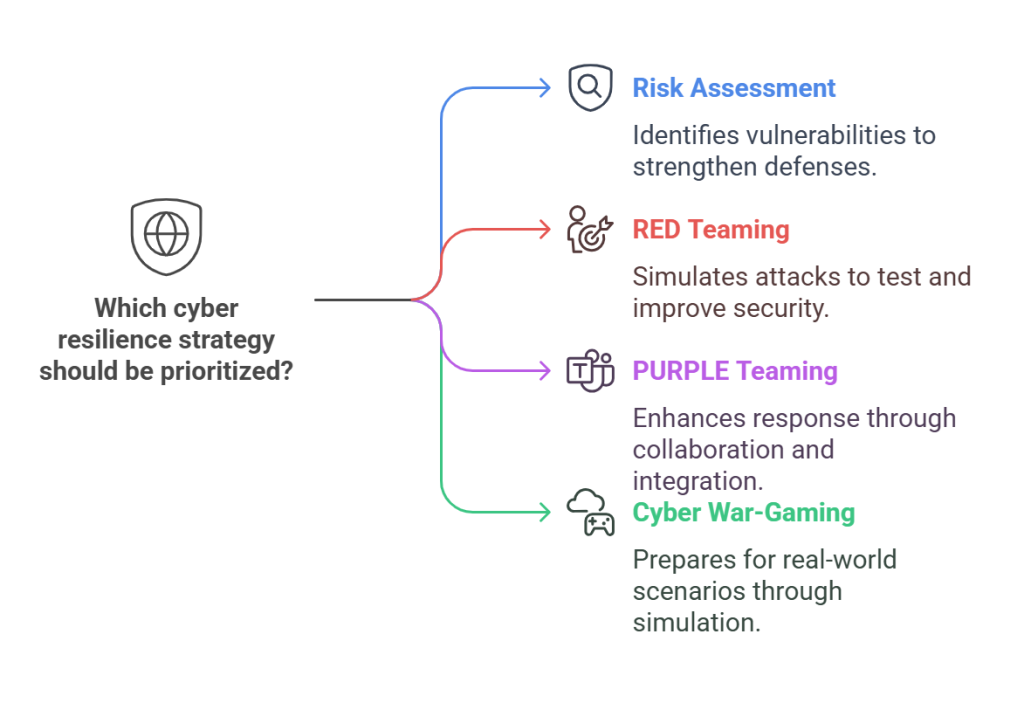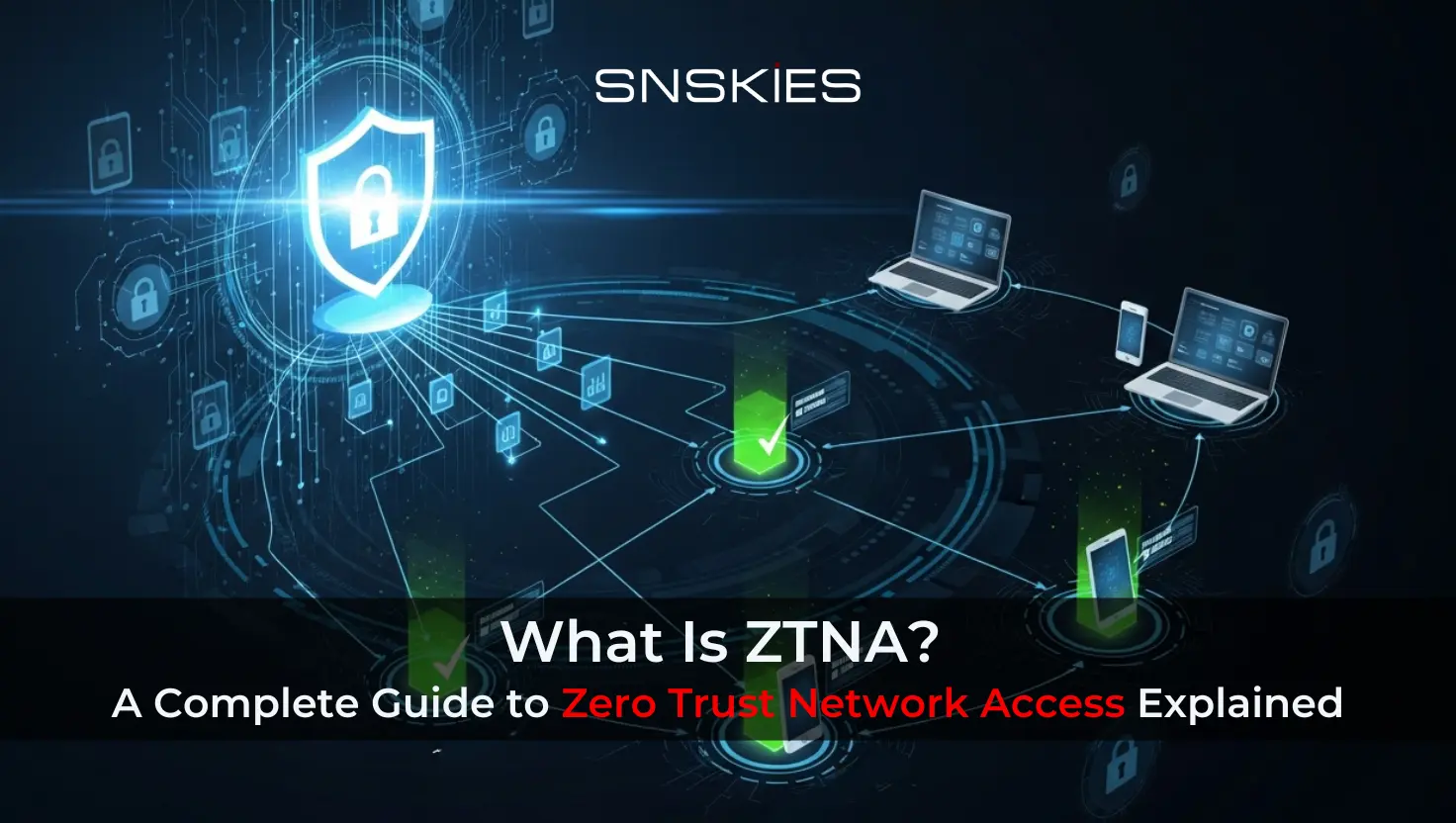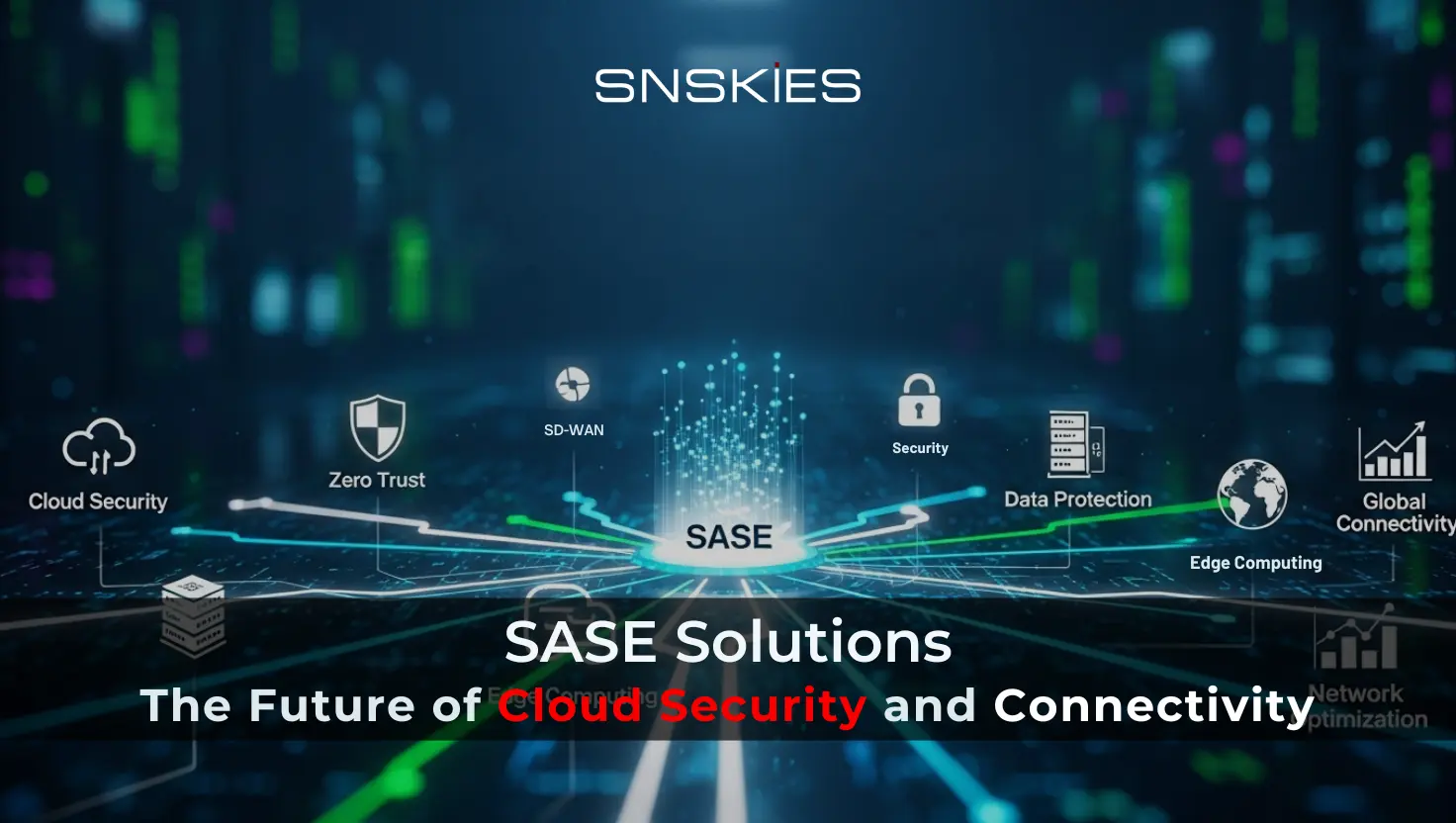- Articles
Understanding Cyber Security Resilience Services in UAE and the Middle East
- Articles
Understanding Cyber Security Resilience Services in UAE and the Middle East
- Articles
- January 30, 2025
In the rapidly evolving digital landscape, businesses across the UAE and the Middle East are facing an increasing wave of cyber threats. As more businesses in the region depend on digital platforms and online services, ensuring the resilience of their cyber infrastructure is critical. Cyber security resilience services have become essential for organizations seeking to protect their operations and digital assets from potential risks. These services not only focus on detecting and defending against cyberattacks but also emphasize preparing businesses to recover swiftly and continue operations in the face of any disruptions.
For businesses in Dubai and the broader UAE region, where the digital economy is booming, cyber resilience has never been more important. By incorporating advanced tools and strategies, organizations can strengthen their defenses, safeguard sensitive data, and maintain operational continuity even in the event of a cyberattack.
What Are Cyber Security Resilience Services?
Cyber security resilience services encompass a suite of solutions designed to help businesses develop a proactive cybersecurity strategy. These services are focused on preventing cyber incidents, responding to them swiftly, and ensuring that businesses can recover quickly after an attack. The goal is to create a resilient digital environment where companies are prepared for any potential security threats.
For businesses in the UAE, where economic sectors such as finance, healthcare, and government heavily depend on secure digital systems, implementing cyber security resilience services is crucial for operational stability. These services provide advanced protection against a range of threats while improving an organization’s ability to recover quickly from any cybersecurity disruptions.
Key Components of Cyber Security Resilience Services

The effectiveness of cyber resilience services lies in their ability to combine multiple layers of protection and response mechanisms. Below are the key components typically involved in such services:
Security Operations Center (SOC) Advisory Services A Security Operations Center (SOC) is an essential facility for organizations to monitor, detect, and respond to cybersecurity threats. SOC advisory services help businesses set up and manage their own SOC, offering 24/7 monitoring of networks and systems to identify potential threats. By integrating SOC with advanced tools, businesses in the UAE can have a real-time response capability to counteract emerging threats.
Incident & Forensics Capability In the unfortunate event of a cyberattack, incident response and forensics are critical components of cyber resilience. Incident response ensures that an attack is contained and mitigated quickly. Forensics, on the other hand, involves investigating the attack to understand its origin, impact, and vulnerabilities exploited. This enables businesses to strengthen their security measures moving forward and prevent similar attacks.
Threat Intelligence Services Threat intelligence services are essential for proactive defense. By gathering and analyzing data from various sources, businesses can gain insights into the latest cyber threats targeting their industry. These services allow organizations to stay one step ahead of cybercriminals, equipping them with actionable information to mitigate risks and bolster their security posture.
Onsite & Hybrid Security Operations With the increase in remote work and cloud-based systems, hybrid security operations are gaining popularity. Hybrid security solutions combine on-premise and cloud-based systems, offering a more flexible and scalable approach to cybersecurity. Onsite operations ensure local protection, while hybrid solutions allow businesses to secure their cloud environments as well.
The Approach to Cyber Defense and Cyber Resilience
As cyber threats evolve, businesses in the UAE must adopt a comprehensive approach to build cyber resilience. This involves not only strengthening security measures but also fostering a culture of continuous improvement and adaptation. Below are the essential elements of a robust cyber defense and resilience strategy:
Govern & Build Resilience The foundation of cyber resilience begins with governance. This includes establishing clear cybersecurity policies, conducting risk assessments, and defining the roles and responsibilities of various stakeholders within the organization. In the UAE, where compliance with local and international regulations is vital, businesses need to integrate governance practices that align with both legal requirements and best industry practices.
Operational Security Insights An effective cyber resilience strategy requires a clear understanding of operational security. By conducting thorough assessments, businesses can identify vulnerabilities and prioritize their cybersecurity investments. Having visibility into an organization’s risk landscape allows businesses to develop targeted strategies that improve defenses and optimize the effectiveness of security measures.
Achieving Higher ROI on Security Investments The key to building resilience lies in maximizing the return on cybersecurity investments. This is done by aligning security measures with business objectives, ensuring that resources are allocated effectively to address the most pressing risks. By implementing best practices and leveraging the latest technologies, businesses can achieve a higher ROI on their cybersecurity efforts while improving internal controls.
Empowering Businesses in the UAE to Achieve Cyber Resilience
As businesses across the UAE continue their digital transformation journeys, the need for advanced cyber security resilience services becomes more critical. With organizations becoming increasingly dependent on technology for their operations, a single cyberattack can have devastating consequences on business continuity, reputation, and revenue.
By embracing a resilient approach to cybersecurity, businesses in the UAE can not only protect their data but also enhance trust among customers, clients, and partners. Whether it’s preventing data breaches, avoiding financial losses, or mitigating the reputational damage caused by cyberattacks, cyber security resilience services provide the tools needed for businesses to thrive in an increasingly uncertain digital landscape.
Cyber Security Services for Advanced Threat Detection and Risk Mitigation
In the ever-evolving world of cybersecurity, businesses in the UAE need solutions that can keep pace with emerging threats. Advanced cyber security resilience services use cutting-edge technologies such as artificial intelligence (AI) and machine learning (ML) to detect threats in real-time and respond proactively. Below are the core services that provide advanced threat detection and risk mitigation:
Real-Time Threat Detection Real-time threat detection enables businesses to identify and respond to cyberattacks as they happen. AI-powered cybersecurity tools continuously monitor network traffic and system activities, identifying unusual behavior that may indicate a potential threat. This early detection allows businesses to take immediate action and reduce the impact of the attack.
Automated Threat Response With the speed at which cyberattacks occur, automated threat response is a key component of cyber resilience. Automated systems can take immediate actions to neutralize threats without human intervention, reducing the time between detection and response. This minimizes the damage caused by attacks and ensures a faster recovery.
Comprehensive Security Forensics In the event of a cyberattack, it’s essential to understand how the breach occurred and what vulnerabilities were exploited. Security forensics involves analyzing the attack’s origin, scope, and impact. This information is critical for improving future security measures and ensuring that similar attacks do not happen again.
Proactive Risk Mitigation Rather than reacting to threats as they arise, businesses should take a proactive approach to cybersecurity. This involves regularly assessing and identifying vulnerabilities within the system, conducting security audits, and implementing preventative measures to minimize the likelihood of an attack. Proactive risk mitigation ensures that businesses are better prepared to defend against cyber threats before they occur.
Cyber Security Challenges in the UAE and Middle East
The UAE, along with other countries in the Middle East, is home to rapidly growing industries, including finance, healthcare, and logistics, all of which are heavily reliant on digital systems. This digital transformation has also opened the door to new cybersecurity challenges. The Middle East has become a prime target for cybercriminals, who are increasingly targeting organizations to exploit vulnerabilities.
Governments in the region are actively working to strengthen national cybersecurity frameworks, and businesses must align their security strategies with these efforts. However, the need for private sector businesses to enhance their own cyber security resilience services cannot be overstated. Failing to do so could result in costly data breaches, financial losses, and long-term reputational damage.
Why Cyber Security Resilience Matters for UAE Businesses
As cyber threats continue to grow in frequency and sophistication, businesses in the UAE and the broader Middle East region must focus on building resilience against potential attacks. Cybersecurity resilience isn’t just about protecting data—it’s about ensuring the continuity of operations, enhancing customer trust, and protecting the long-term viability of the organization.
With the rise in digital transformation and the increasing number of interconnected devices, the importance of having comprehensive cyber security resilience services is clear. Businesses that invest in proactive cybersecurity measures are better equipped to handle the evolving threat landscape, minimize downtime, and safeguard their critical assets.
Conclusion
In today’s increasingly connected world, cyber security resilience services are no longer optional but a necessity for businesses in the UAE and across the Middle East. By adopting advanced threat detection systems, implementing proactive security measures, and building a resilient infrastructure, businesses can safeguard their operations, protect customer data, and maintain trust in an ever-evolving digital landscape. With the right tools and strategies, organizations can turn cybersecurity challenges into opportunities, ensuring long-term success and stability.
Frequently Asked Questions
Cyber security resilience refers to a business's ability to not only prevent cyberattacks but also respond quickly and recover effectively when they occur. It focuses on minimizing the impact of security incidents and ensuring business continuity.
Cyber resilience services employ advanced technologies like AI and machine learning to detect, analyze, and respond to emerging threats in real-time, allowing businesses to stay ahead of cybercriminals.
Yes. Small businesses in the UAE can benefit from cyber security resilience services by ensuring that their systems are protected against cyber threats. These services can be scaled to meet the needs of organizations of all sizes.
Threat intelligence provides businesses with up-to-date information about current cyber threats, enabling them to prepare for potential risks and take preventive measures to avoid attacks.
Improving cyber resilience involves a combination of proactive threat detection, incident response planning, regular security audits, and building a culture of security within the organization.
Recent Post
- All Posts
- Articles
- Blog
- News


